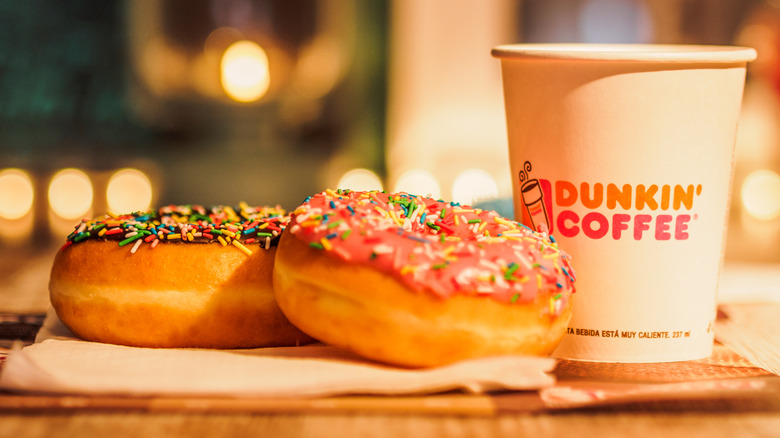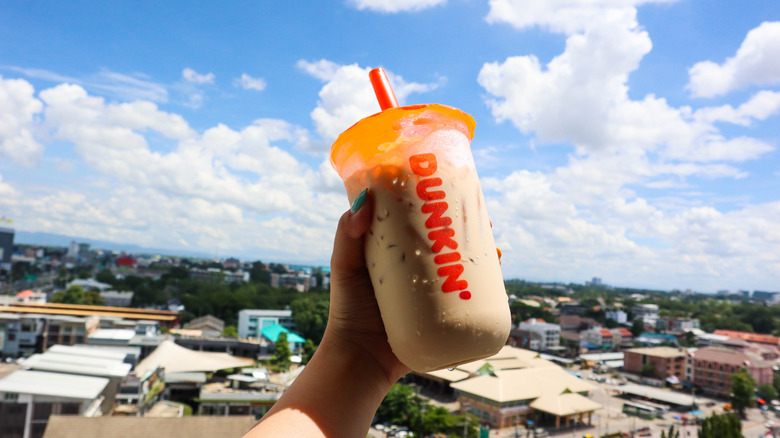How WWII Jumpstarted Dunkin' Donuts
One of the most paramount purveyors of java, Dunkin' is a formidable constant within the coffee world — especially in Boston and the Northeast US at large. Boasting slews of reliable, accessible coffee and espresso beverages, teas, and lots of delicious foods (both sweet and savory) — as well as stellar seasonal and holiday flavors and offerings — Dunkin' has more than made its mark on coffee drinkers and non-coffee drinkers alike. If you're familiar with the origin story, then you might have that fun fact tacked away as a fun conversation point. If not, read ahead to learn all about the beginning of the coffee giant.
Did you know that Dunkin' serves more than 3 million customers every day, according to their official website? While many are aware that Dunkin' was founded in the Boston area (Quincy, MA, to be specific), many don't know that it was founded by a man named Bill Rosenberg in 1950 and began franchising only five years later.
What is the link between WWII and Dunkin'?
The LA Times notes that Rosenberg was a caterer working with industrial workers, and used the money he saved from selling WWII bonds (coupled with some money borrowed from relatives) to found a business which utilized taxicabs as mobile catering vehicles. Soon after, Rosenberg realized that 40% of his sales were from coffee and donuts alone, he realized he could pivot to primarily offering those two items. Soon after, he started a brick-and-mortar store called Open Kettle, and his architect is actually the person who suggested the moniker Dunkin' Donuts — which stuck! In 2019, though, the company did officially rename to Dunkin', dropping the "donuts" component of the original name, keeping the new focus on the coffee itself. As they say, the rest is history.
For those unacquainted, war bonds were sold in order to bolster the financial side of the war efforts throughout the second World War, as noted by the CRS Congressional Report. The goal was to try to associate purchasing war bonds with a sense of patriotism and pride in one's country, which even sometimes included robust marketing in cartoons, absurdly enough. It's certainly quite manipulative to pry on children's emotions in order to encourage them to beg their parents to be good citizens, but that's a conversation for another day.
So when you visit Dunkin' next to pick up a delicious Holiday themed or flavored coffee drink, a large cup of plain black coffee, or maybe one of their new cookie butter donuts, keep in mind the roots of the establishment.

